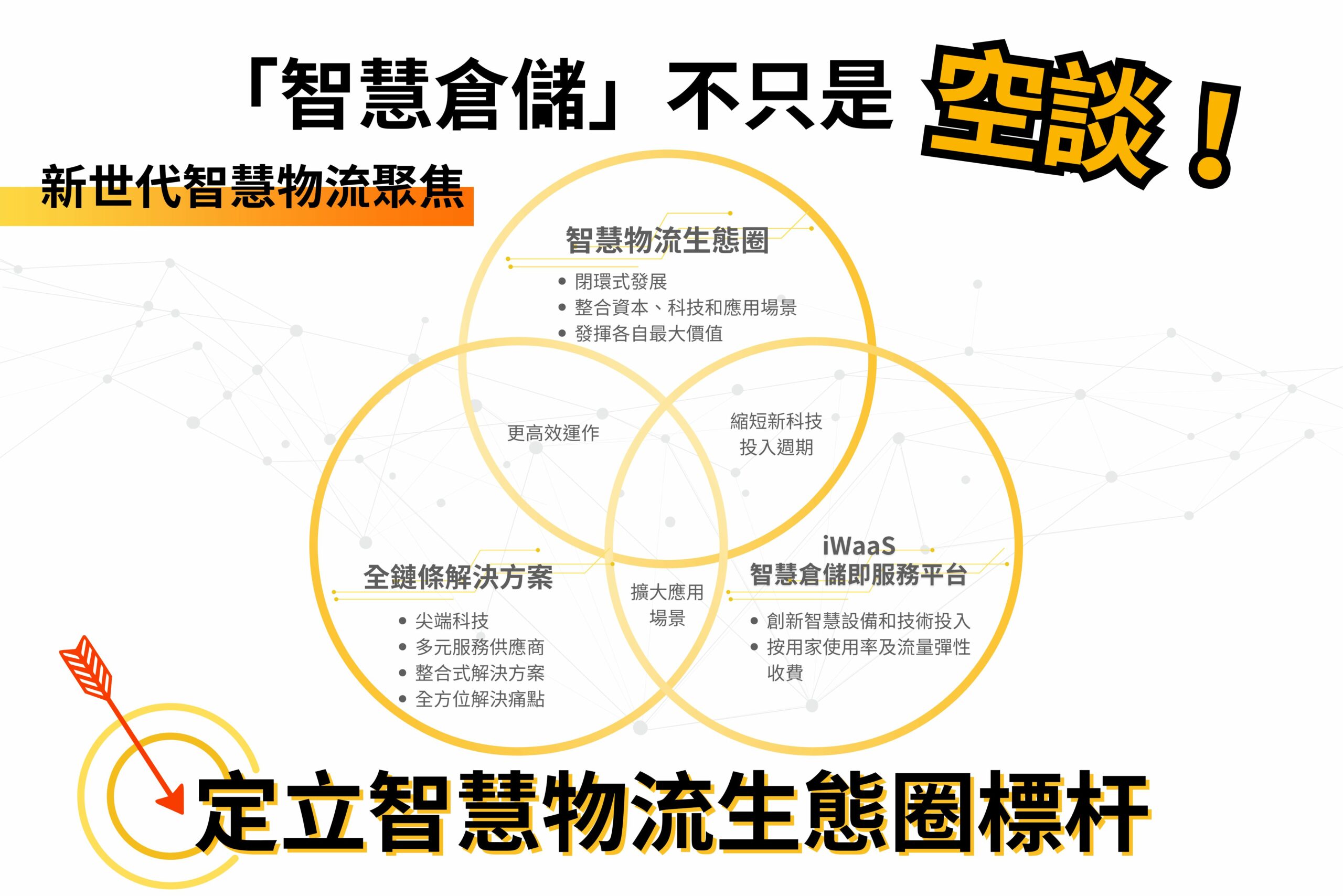“Smart warehousing” is no longer just a slogan, Take action to implement “Comprehensive Supply Chain Solutions”
- August 16, 2024

In recent years, the surge in e-commerce orders has driven ever-increasing logistics demand. “Smart warehousing” is no longer just a “slogan” – the entire industry must actually implement it to remain competitive.
Recent data from Goldman Sachs shows global e-commerce sales reached $3.6 trillion in 2023, indicating a huge spike in express delivery orders. There are also diverse market demands that are difficult to satisfy, such as in specialized logistics like frozen storage and cold chain.
Integrated, comprehensive logistics solutions:
To address these challenges, logistics supply chain solutions are becoming more comprehensive and integrated. Traditional “point-to-point” express delivery services can no longer meet diverse market needs. So providers like Domain are launching “end-to-end solutions” that integrate advanced technologies like automation, big data, and IoT, as well as unified smart logistics services.
The goal is to comprehensively solve customers’ pain points and improve the efficiency of the entire supply chain ecosystem.
“Intelligent warehousing-as-a-service” model:
In the 3PL sector, traditional companies also face challenges like high capital investment and demand fluctuations. The emerging “smart warehousing-as-a-service” (iWaaS) model has become a solution.
This model uses innovative equipment investment and flexible billing to shorten the adoption cycle of new logistics technologies. The asset-light approach allows 3PLs to focus on improving operational efficiency to better meet customer needs.
Smart logistics ecosystems:
At the same time, the collaboration model among logistics players is upgrading, and the concept of a smart logistics ecosystem is taking shape. Achieving “end-to-end solutions” requires deep integration of capital, technology, and real-world applications – something a single company can’t do alone.
The smart logistics ecosystem provides an integrated solution by combining logistics real estate, technology, and operations. Providers like Domain are building these ecosystems to integrate various logistics stakeholders.
Shift to asset-light, ecosystem models:
These trends reflect the logistics industry’s transformation from asset-heavy to asset-light, and from single services to ecosystem-based models.
Going forward, logistics companies will need to digitally transform and collaborate across the value chain to drive greater intelligence and efficiency industry-wide.
This is just the introduction to the “New Generation Smart Logistics Ecosystem” theme. The upcoming series will dive deeper into how to build these integrated solutions.
Other News
- All Post
- CSR

Reitar is honored to announce its dual achievement at the 2024-2025 Digital Accessibility Awards, receiving both the Gold Award and Elderly-Friendly Award for outstanding contributions to inclusive technology.

At Reitar, the philosophy of “Creating Shared Value” extends beyond business—it shapes our ESG approach, turning principles into tangible societal impact. Since April 2024, we have partnered with the New Life Psychiatric Rehabilitation Association in their “ECF Food Sharing Project” by placing a mobile food collection box in our office.

The World Wide Fund for Nature Hong Kong (WWF) has organized Earth Hour 2025, the world's largest environmental movement which took place on Saturday, March 22, at 8:30 PM, aiming to raise awareness about climate change and promote sustainable living. In support of this initiative, Reitar took proactive actions by switching off the office lights for an hour a day...

Reitar's environmental efforts have been recognized with two Excellence Level certifications under the Hong Kong Green Organisation Certification (HKGOC) program: the Waste Reduction Certificate and the Energy Saving Certificate. This achievement grants us the "Hong Kong Green Organization" title, becoming one of the environmentally friendly enterprises.
